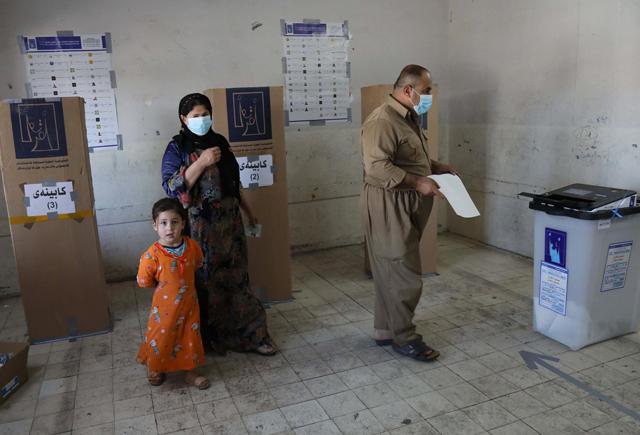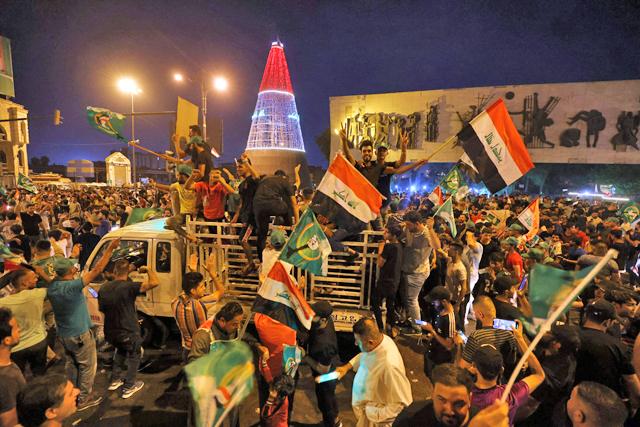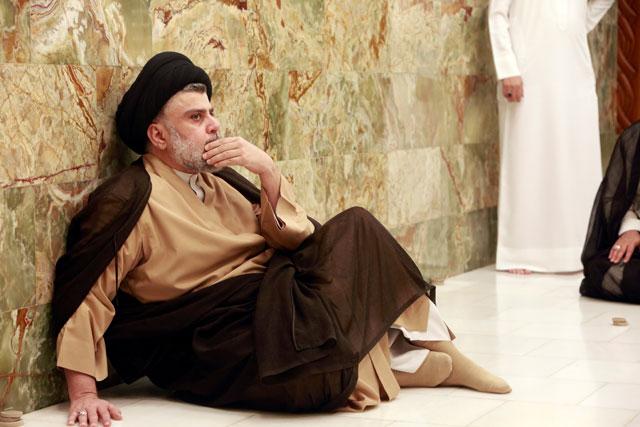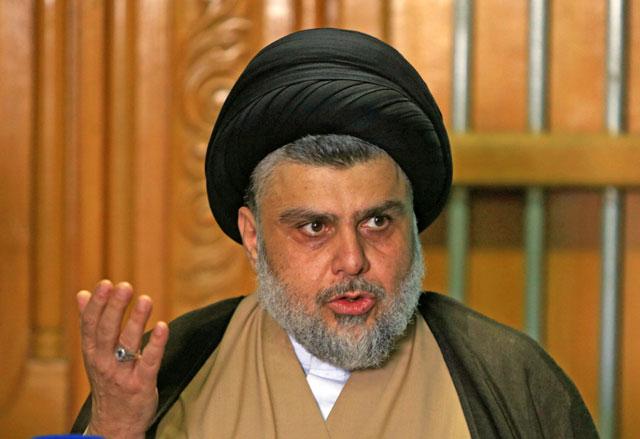You are here
Record low voter turnout mars Iraqi parliamentary elections
By AFP - Oct 11,2021 - Last updated at Oct 11,2021

Iraqi Kurds vote in early parliamentary elections at a polling station in Erbil, the capital of the Kurdish autonomous region in northern Iraq, on Sunday (AFP photo)
BAGHDAD — Turnout hit a record low for parliamentary elections in war-scarred Iraq, early figures showed Monday, amid widespread disillusionment about a political elite seen as inept and corrupt.
Sunday's vote was moved forward from 2022 as a concession to an anti-government protest movement that has demanded deep reforms in the oil-rich yet poverty-stricken country.
But in the end voter participation hit a new low in Iraq's fifth election since the 2003 US-led invasion that ousted leader Saddam Hussein with the promise of bringing freedom and democracy.
Preliminary turnout was just 41 per cent, the electoral commission said, below the 44.5 per cent recorded in 2018. Official preliminary results had not yet been released and were expected later Monday.
"There's general apathy. People just don't believe that elections matter," said Iraqi researcher Sajad Jiyad of the Century Foundation think-tank.
“The weak turnout is a warning. It is not only the legitimacy of the next prime minister that is in question, but also the legitimacy of the government, of the state — of the entire system.”
Kerar Haider, who was busy removing campaign posters from the streets of the capital’s Kerrada district, said he did not vote “because it is useless”.
“The same faces always come back,” the 26-year-old said.
Prime Minister Mustafa Al Kadhemi brought forward the vote to appease a youth-led protest movement that erupted two years ago against graft, unemployment and crumbling public services.
Iraq is a major oil producer but nearly a third of its almost 40 million people live in poverty, according to UN figures, and the COVID pandemic only deepened a long-running crisis.
The premier and national spy chief tweeted that he had “kept his promise and done his duty by organising fair elections”.
Kadhemi’s own political future is now uncertain, with few observers willing to predict who will emerge as leader after the usual political haggling between factions that follow Iraqi elections.
Early fireworks
The election was held under tight security in a country where key parliamentary blocs have armed factions and the Daesh terrorists have launched mass-casualty suicide attacks this year.
Airports were closed and travel between provinces banned, while voters were searched twice at polling stations.
An attack blamed on Daesh on a voting centre in a remote part of northern Iraq left a police officer dead, a security source said.
And a soldier was killed and another wounded by “accidental fire” from a fellow soldier at a polling station in Diyala province bordering Baghdad, officials said.
Authorities also reported the arrest of 77 suspects for electoral “violations”.
The vote was marred by technical problems at some stations, including malfunctioning equipment and fingerprint readers, officials and AFP journalists said.
Official provisional results were now expected later Monday, but some candidates already claimed victory and celebrated with fireworks overnight in Baghdad and the southern city of Nasiriyah.
Fragmented parliament
In Sunday’s election, some 25 million eligible voters were called to choose from more than 3,200 candidates.
A new single-member constituency system for electing Iraq’s 329 lawmakers aimed to boost independents versus the traditional blocs largely centred on religious, ethnic and clan affiliations.
Iraqi politics, and the legislature, have been dominated by factions representing the country’s Shiite Muslim majority since the fall of Saddam’s Sunni-led regime.
But they are increasingly split, including in their attitudes towards powerful Shiite neighbour Iran, which competes with the United States for strategic influence in Iraq.
The biggest bloc has been the Sadrist camp of Shiite leader Moqtada Sadr, a political maverick and former anti-US militia leader who opposes all foreign influence in Iraq.
Sadr was among those who hailed their electoral “success” ahead of official preliminary results.
The most powerful pro-Iranian factions are from the bloc linked to the Hashed Al Shaabi umbrella group of paramilitary groups, which helped defeat Daesh.
Experts say the large blocs are likely to preserve their dominance in the fragmented parliament, where the lack of a clear majority will force them to negotiate alliances.
Iraq by convention has had a Shiite Muslim prime minister, a Sunni parliament speaker and a Kurdish president.
Related Articles
BAGHDAD — Two days after Iraq's legislative election, pro-Iranian Shiite Muslim parties and armed groups on Tuesday denounced early poll res
BAGHDAD — Nationalist cleric Moqtada Al Sadr, a long-time adversary of the United States, led in Iraq’s parliamentary election with more tha
BAGHDAD, Iraq — A political bloc led by populist Shiite cleric Moqtada Al Sadr, a long-time adversary of the United States who also op



















